The International Commission on Nobility and Royalty | home
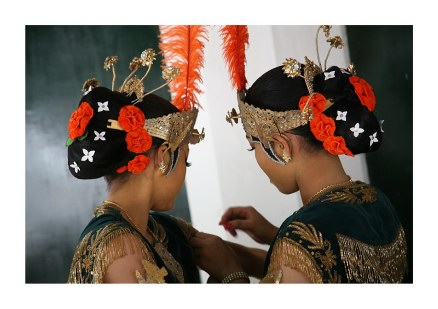 The Return of Royalty to Indonesia
The Return of Royalty to Indonesia 
(See Additional Articles below)
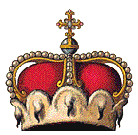 The following are quotes and paraphrases from the article: “Return of the Sultans,” by Gerry van Klinken and comments by Donald P. Tick.
The following are quotes and paraphrases from the article: “Return of the Sultans,” by Gerry van Klinken and comments by Donald P. Tick.
It is about the fact that “pomp and ceremony is returning to dusty palaces all over Indonesia.” (www.insideindonesia.org/content/view/244/29)
The government of Indonesia as of December 2007 decided that ancient culture and royalty must be recognized. Hence, the Indonesian government has officially recognized the important contribution of the former small monarchs in their history and are registering the present heads of the ruling families as representing the former kings and sovereign princes who ruled their land. Apparently about 100 of about 300 have been screened so far as valid claimants. However, some have too many claimants as royal heads of heir particular branch and therefore may not be included among the honored. But this recognition is a great milestone for these ancient royal families.
The 2004 article starts off with the following two paragraphs:
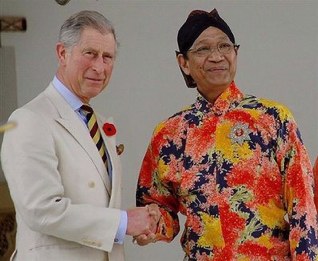 The last sultan of Pontianak, Syarif Hamid II Alqadrie, was jailed for 10 years in 1953 for siding with the Dutch army against the Indonesian Republic during the revolution of 1945. When he died in 1978 the throne was left empty. His palace remained a somewhat run-down tourist attraction by the Kapuas River. In January 2004 a new sultan was installed in the Qadriah palace, a nephew of Sultan Hamid II. At the celebration to mark the occasion, golden umbrellas adorned the palace, and thousands of well-wishing guests dressed in traditional Malay finery feasted on food set out in long rows on mats. Massive cannon shots boomed over the river and Air Force Skyhawks performed acrobatics over the palace. The man who said the prayers almost choked on his tears; his father had taught the Koran to the entire Alqadrie family years ago. It seemed as if the past was not gone after all.
The last sultan of Pontianak, Syarif Hamid II Alqadrie, was jailed for 10 years in 1953 for siding with the Dutch army against the Indonesian Republic during the revolution of 1945. When he died in 1978 the throne was left empty. His palace remained a somewhat run-down tourist attraction by the Kapuas River. In January 2004 a new sultan was installed in the Qadriah palace, a nephew of Sultan Hamid II. At the celebration to mark the occasion, golden umbrellas adorned the palace, and thousands of well-wishing guests dressed in traditional Malay finery feasted on food set out in long rows on mats. Massive cannon shots boomed over the river and Air Force Skyhawks performed acrobatics over the palace. The man who said the prayers almost choked on his tears; his father had taught the Koran to the entire Alqadrie family years ago. It seemed as if the past was not gone after all.
Long-dormant sultanates are being revived all over Indonesia. My own list, no doubt incomplete, contains about 24 of them in Kalimantan, Sumatra, Java, and Maluku. That does not count the 40 or so sultans and non-Islamic kings whose roles have not changed appreciably. Figures such as the sultan of Bima and the king of Kupang have always been respected as informal local leaders.
The governmental climate that has allowed this change is that a new governmental focus on:
Autonomy has brought not merely new administrative arrangements but a new kind of political struggle requiring new (or newly reinvented) symbols. The autonomy laws are focused on the districts (kabupaten), not on the provinces. The boundaries of these districts often reflect the numerous small kingdoms that were incorporated into the Netherlands Indies by Dutch colonists, some of which were described by Joseph Conrad in his stories, including Lord Jim. Areas ruled indirectly covered more than half the archipelago outside of Java. It should be no surprise that these kingdoms have now become symbols of district identity. The message to Jakarta is: don't underestimate us, we have a magnificent history.
It is important to remember that the sultans are symbols lacking real power. There is no question of them becoming real sultans; they are weekend sultans who hold regular jobs in the city, not the `off with his head!' sultans of another era.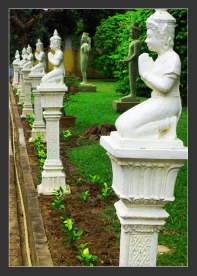
Exactly what the symbols mean is more difficult to determine. There is no doubt that Indonesia's sultans are well liked and the notion of kingship remains a popular one. . . .
The royal families I have spoken with in West Kalimantan say their leadership is meant to bring different ethnic groups together. They point out that their forefathers married into many different groups in order to extend their influence, as kings have always done. The Mempawah royal family has Bugis and Dayak blood as well as Malay in its lineage, making the sultanate a symbol of an all-embracing unity. . . .
However, these symbols can become divisive if turned to real political power. . . .
The author concluded, “It is yet to be determined if the new sultans can be a positive influence on local politics. . . .”
Donald Tick states:
The king; sultan Hamengku Buwono X of Yogjakarta, tried during the presidential election of 2009, to become the new president, but it was not yet the time for it, although he was very popular.
The royalty are now represented by 3 organisations: FKKAS (for Sulawesi only), FKIKS (the oldest one) and FSKN (this last one is the most succesful and is seen as the official one, but it has some political problems in it's history).
. . . The organising of royal festivals can be a way of showing royal culture to outsiders and especially to their own people, who with amazement sees the rich culture, which was pushed back for such a long time [since 1945].
Time will tell, how the royalty and the people will deal with all of this, because it is a living process with human beings, who must choose and revalue an important matter in their existence.
We can only hope the best for them and that the Creator above will give them wisdom.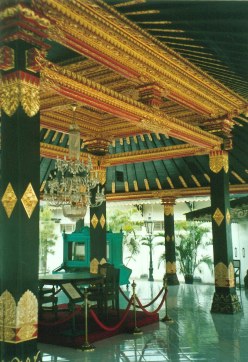
This article will be added to as more facts become apparent, but we welcome the recognition of royalty and its importance and relevance to modern times all over the earth.
Other articles in this section:
We encourage you to read and enjoy the articles that follow, which are informative and can deepen one's understanding of the whys and wherefores as well as the true and permanent rights of royalty, nobility and chivalry. The following articles are considered to be especially important and valuable:
Use "Contact" to join the Commission as a contributor or apply for certification for titles, knighthood, status or ancestry. Our goals and mission are to protect the public from counterfeit titles, phony knighthoods and fake genealogies. We certify the true and the genuine as well as promote chivalry, royalty and nobility. There is so much that needs to be done. We invite you to contribute and join with us.
Contact or donate through the following:
© Copyright 2005/2009 -- International Commission on Nobility and Royalty. All Rights Reserved.
 The following are quotes and paraphrases from the article: “Return of the Sultans,” by Gerry van Klinken and comments by Donald P. Tick.
The following are quotes and paraphrases from the article: “Return of the Sultans,” by Gerry van Klinken and comments by Donald P. Tick. The last sultan of Pontianak, Syarif Hamid II Alqadrie, was jailed for 10 years in 1953 for siding with the Dutch army against the Indonesian Republic during the revolution of 1945. When he died in 1978 the throne was left empty. His palace remained a somewhat run-down tourist attraction by the Kapuas River. In January 2004 a new sultan was installed in the Qadriah palace, a nephew of Sultan Hamid II. At the celebration to mark the occasion, golden umbrellas adorned the palace, and thousands of well-wishing guests dressed in traditional Malay finery feasted on food set out in long rows on mats. Massive cannon shots boomed over the river and Air Force Skyhawks performed acrobatics over the palace. The man who said the prayers almost choked on his tears; his father had taught the Koran to the entire Alqadrie family years ago. It seemed as if the past was not gone after all.
The last sultan of Pontianak, Syarif Hamid II Alqadrie, was jailed for 10 years in 1953 for siding with the Dutch army against the Indonesian Republic during the revolution of 1945. When he died in 1978 the throne was left empty. His palace remained a somewhat run-down tourist attraction by the Kapuas River. In January 2004 a new sultan was installed in the Qadriah palace, a nephew of Sultan Hamid II. At the celebration to mark the occasion, golden umbrellas adorned the palace, and thousands of well-wishing guests dressed in traditional Malay finery feasted on food set out in long rows on mats. Massive cannon shots boomed over the river and Air Force Skyhawks performed acrobatics over the palace. The man who said the prayers almost choked on his tears; his father had taught the Koran to the entire Alqadrie family years ago. It seemed as if the past was not gone after all.


